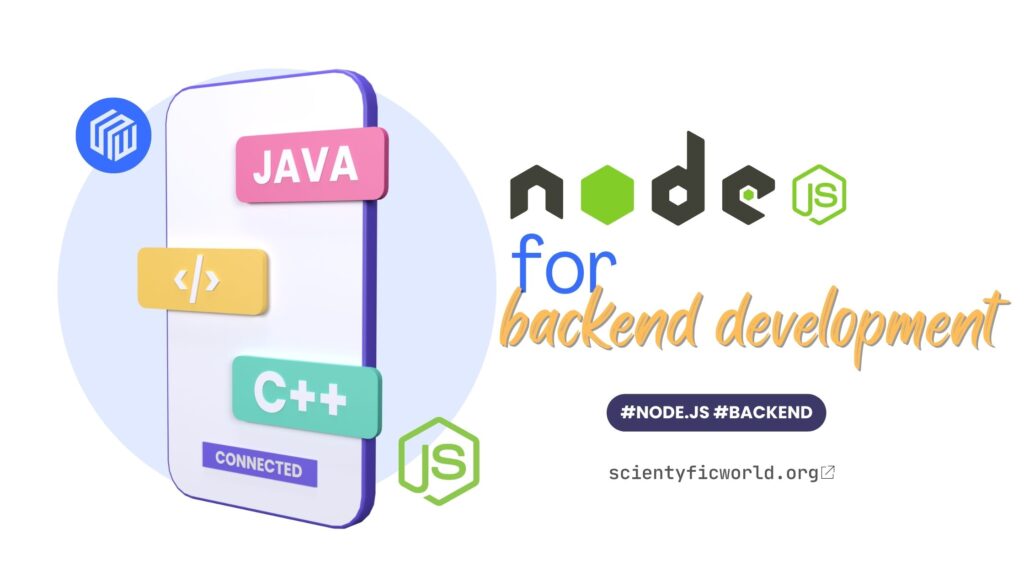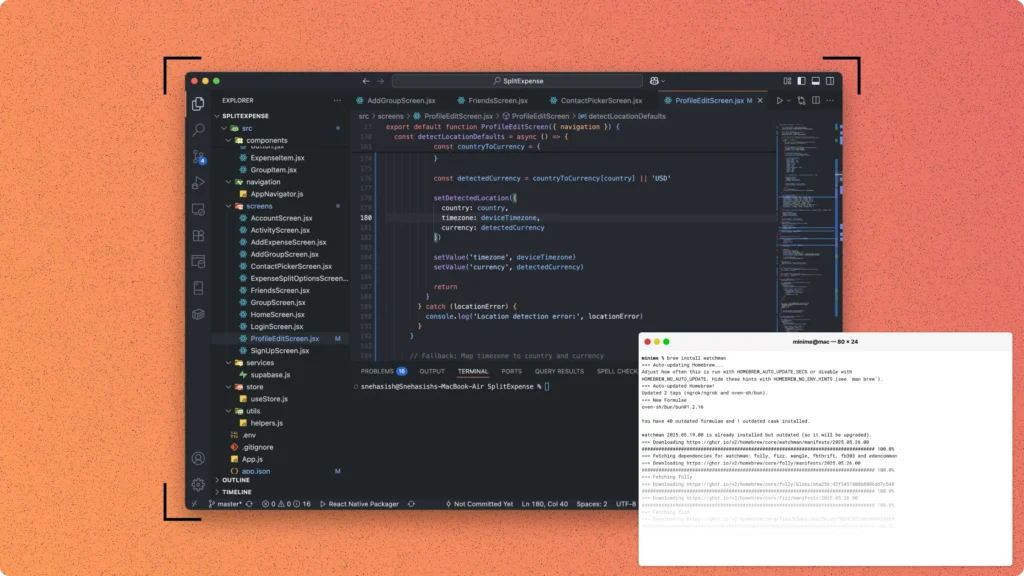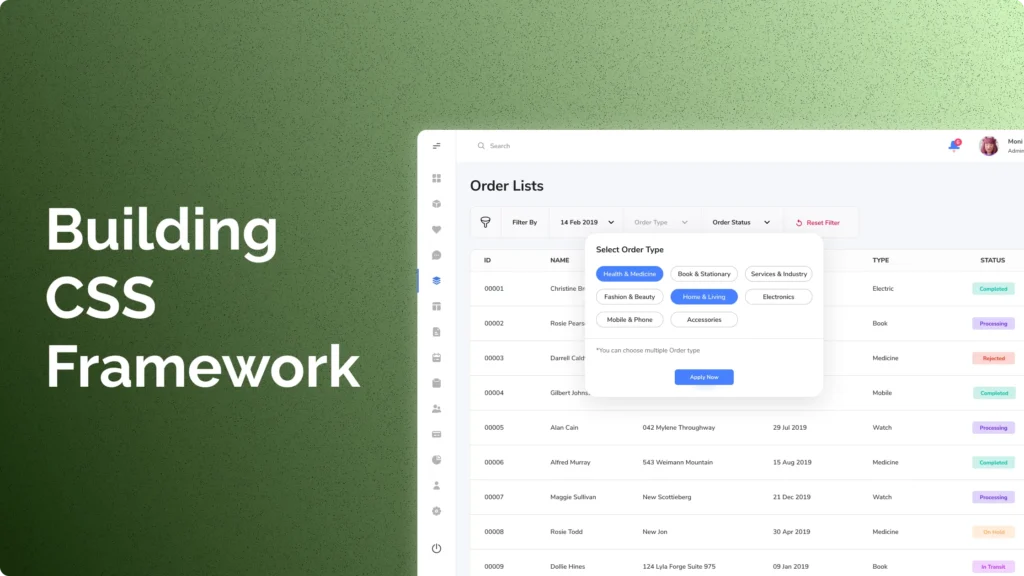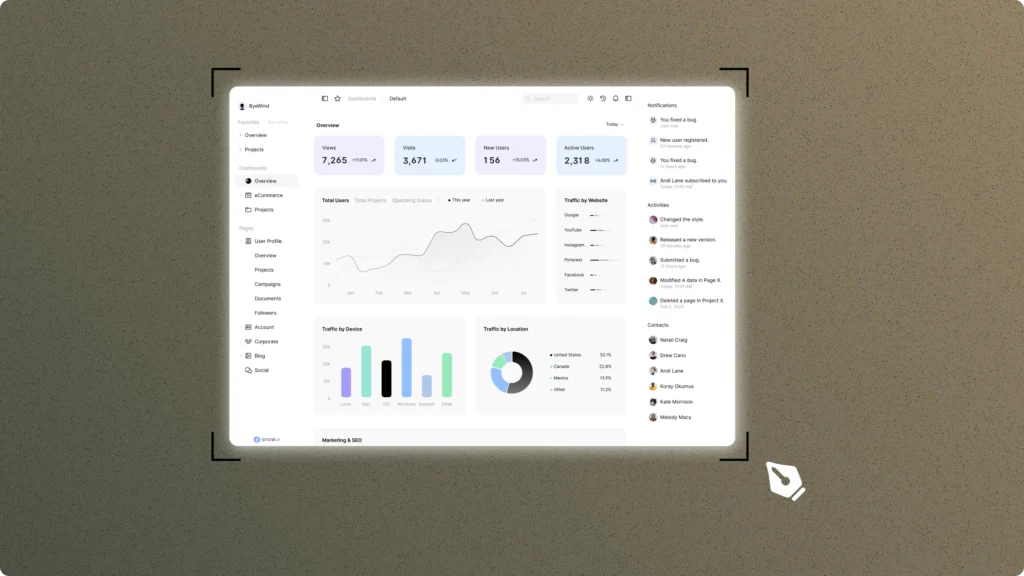In this blog, we’ll be talking about the benefits of Node.js for backend development. Node.js is a JavaScript runtime environment that has recently gained a lot of popularity due to its ability to be used for backend development. Developed by Ryan Dahl in 2009, Node.js runs on servers and helps developers develop web applications with ease. It is a cross-platform runtime environment that makes it a great choice for backend development.
Node Js is an open-source, cross-platform, JavaScript runtime environment that executes JavaScript code outside of a web browser. It allows developers to build server-side applications with JavaScript and offers a rich ecosystem of libraries and frameworks, such as Express.js, that make it easy to build APIs and other types of web applications.
Now first, it is important for us to know and understand what it is and what are the benefits of Node.js for backend development.
What is Node.js?
Node.js is a JavaScript runtime environment that runs on the Google Chrome V8 JavaScript engine. It is an open-source platform that enables developers to create server-side applications using JavaScript. It is highly scalable, efficient, and lightweight, making it an ideal platform for building web applications. It is also capable of executing code outside the main thread, making it suitable for developing highly concurrent and distributed systems.
Benefits of Node.js for Backend Development
Node.js provides a number of advantages for backend development. It is an event-driven and non-blocking I/O platform that enables developers to create highly concurrent applications. It also provides a single programming language for the entire application stack, making it easier to develop and maintain applications. Additionally, Node is lightweight and highly scalable, making it suitable for developing applications with large data sets.
1. Less Learning Curve
One of the main advantages of using Node Js for backend development is that it has a relatively low learning curve. Because it uses JavaScript which is a widely-used and well-known programming language. Meaning that many people already have at least some familiarity with JavaScript. And this can make it easier to learn Node js compared to other technologies that use different programming languages. Additionally, the Node js ecosystem offers a rich set of libraries and frameworks that can make it easier to develop applications. So once you have a basic understanding of Node js, you can leverage these tools to quickly build and deploy your applications.
2. Fast Development
One of the advantages of using Node js is that it allows for fast development. This is because it uses JavaScript, which is a dynamically-typed and interpreted language, so you don’t have to spend time compiling your code. Additionally, the Node js ecosystem offers a rich set of libraries and frameworks, such as Express.js, that make it easy to build and deploy web applications. This means that you can quickly prototype and develop your applications, and get them up and running in a short amount of time. Additionally, the Node js community is large and active, so you can easily find support and resources online to help you with your development.
3. Scalability
Node js is known for its scalability. This is because it uses an event-driven, non-blocking I/O model, which makes it efficient at handling a large number of concurrent connections. This means that it can easily handle high traffic levels, and can be easily scaled horizontally across multiple machines to support even higher levels of traffic. Additionally, the Node js ecosystem offers a number of tools and frameworks that make it easy to build scalable applications, such as load balancers and cluster managers. This makes it a popular choice for building real-time, data-intensive applications that need to be able to handle a large number of concurrent users.
4. High Performance
Node js is known for its high performance and efficiency. One of the key reasons for this is that it is built on top of the V8 JavaScript engine, which is the same engine used by Google Chrome. This engine compiles JavaScript code into native machine code, which makes it run very quickly. Additionally, Node js uses an event-driven, non-blocking I/O model, which makes it highly scalable and able to handle a large number of concurrent connections efficiently. This makes it a good choice for building real-time, data-intensive applications, such as chat systems and live-updating feeds. Additionally, Node js has a lightweight core, which makes it a good choice for building applications that need to be fast and responsive.
5. Real-Time Applications
Node js is commonly used for building real-time applications, such as chat systems, collaboration tools, and live-updating feeds. This is because it is built on top of the V8 JavaScript engine, which is very fast, and because it uses an event-driven, non-blocking I/O model. This thing makes it efficient at handling a large number of concurrent connections. Additionally, the Node js ecosystem offers a number of libraries and frameworks that make it easy to build real-time applications, such as Socket.io, which provides real-time, bidirectional communication between clients and servers. This makes Node js a good choice for building real-time applications that need to be fast and responsive.
6. Great for Microservices
Node.js is a good choice for developing microservices. Microservices are a software architecture style in which an application is built as a set of small, independent services that communicate with each other using well-defined APIs. This architectural style has become popular in recent years because it allows for more flexibility and scalability compared to traditional monolithic architecture. Node.js is well-suited for building microservices because it is lightweight and efficient and because it offers a rich ecosystem of libraries and frameworks that make it easy to build and deploy web services. Additionally, many microservices use JavaScript, so using Node.js for your microservices can make it easier to share code and data between your services.
7. Easy Maintainability
Node.js can help make applications easier to maintain in several ways. First, because Node.js uses JavaScript, which is a dynamically-typed and interpreted language, you don’t have to spend time compiling your code. This makes it easier to make changes to your code and quickly see the results of those changes. Additionally, the Node.js ecosystem offers a rich set of libraries and frameworks that can make it easier to build and organize your application, so you can use well-established patterns and practices to structure your code. This can make it easier to understand and maintain your code over time. Additionally, because NodeJs is open-source, there is a large and active community of developers who contribute to the project and provide support and resources, so you can easily find help if you have questions or run into issues.
8. Extensive Libraries
Node JS has an extensive library of modules that make it easy to build a wide range of applications. These modules are developed and maintained by the Node Js community and are available via the npm (Node Package Manager) registry. There are modules for just about everything, from web servers and databases to authentication and data parsing. This makes it easy to find pre-built components that you can use in your applications, which can save you time and effort. Additionally, the Node Js community is very active, so new modules are being added to the library all the time, and existing modules are regularly updated to add new features and fix bugs. This means that you can easily find the tools you need to build your applications, and can be confident that they will be well-supported and up-to-date.
9. Vast Community
Node Js has a very large and active community of developers who contribute to the project and support each other. This community is made up of individuals and companies who use Node to build a wide range of applications, and who are dedicated to improving the technology and making it better for everyone. The community is engaged and collaborative, and there are many ways to get involved, such as participating in online forums, attending conferences and meetups, and contributing to the project on GitHub. This means that you can easily find support and resources when you are learning Node or working on a project, and can be confident that you are using a technology that is well-supported and widely used.
10. Cross-Platform
Node Js is a cross-platform runtime environment, which means that it can run on multiple platforms, such as Windows, macOS, and Linux. This is one of the key advantages of using Node JS, as it allows you to write your code once and run it on any platform that supports Node JS. This can save you a lot of time and effort, as you don’t have to write separate versions of your code for each platform, and you can easily deploy your applications to multiple environments. Additionally, because it is open-source, it is developed and maintained by a community of contributors, which means that it is constantly being improved and updated to support new platforms and technologies. This makes it a flexible and versatile runtime environment that can be used for a wide range of applications.
11. Highly Extensible
Node is highly extensible, which means that it can be easily extended and customized to support a wide range of applications and use cases. This is because NodeJS has a modular architecture, which means that it is made up of a core runtime environment and a large library of modules that provide specific functionality. These modules are developed and maintained by the NodeJS community and are available via the npm (Node Package Manager) registry. This means that you can easily find and incorporate additional functionality into your NodeJS applications by using existing modules, or by creating your own modules. Additionally, because NodeJS is open-source, you can easily modify the core runtime to suit your specific needs, or to add new features and capabilities. This makes NodeJS a very flexible and adaptable technology that can be used for a wide range of applications.
Advantages of Node.js over other frameworks:
Node Js is a powerful platform for backend development and is often compared to other popular frameworks such as Java, Ruby on Rails, and Python. Node Js is often preferred for its single-language architecture, which eliminates the need for developers to learn multiple languages. Additionally, Node is highly scalable, making it suitable for developing large-scale applications. It also has a wide range of libraries and modules that make it easy to create and maintain applications.

Node vs PHP:
NodeJS and PHP are both popular technologies for building web applications, but they have some key differences.
Here is a comparison table that summarizes some of the key differences between Node.js and PHP:
| Comparison | Node.js | PHP |
|---|---|---|
| Type | Runtime environment | Server-side scripting language |
| Language | JavaScript | PHP |
| Execution model | Event-driven, non-blocking I/O | Synchronous, blocking I/O |
| Performance | High | Moderate |
| Scalability | High | Moderate |
| Ecosystem | Large and active | Large and mature |
| Built-in support for databases | No | Yes |
As you can see, Node.js and PHP have some key differences, such as the language they use, their execution model, and their performance and scalability. Ultimately, the choice between these technologies will depend on your specific needs and preferences.
Conclusion
These are some of the biggest benefits of Node.js for backend development. Node.js is a fast and lightweight framework that is easy to use and scale. It is also secure, well-supported, and has a low turnaround time. Additionally, Node.js has built-in debugging and security features that make it great for developing applications that handle sensitive data. All in all, Node.js is an excellent choice for backend development, and it offers some great advantages over other technologies.







